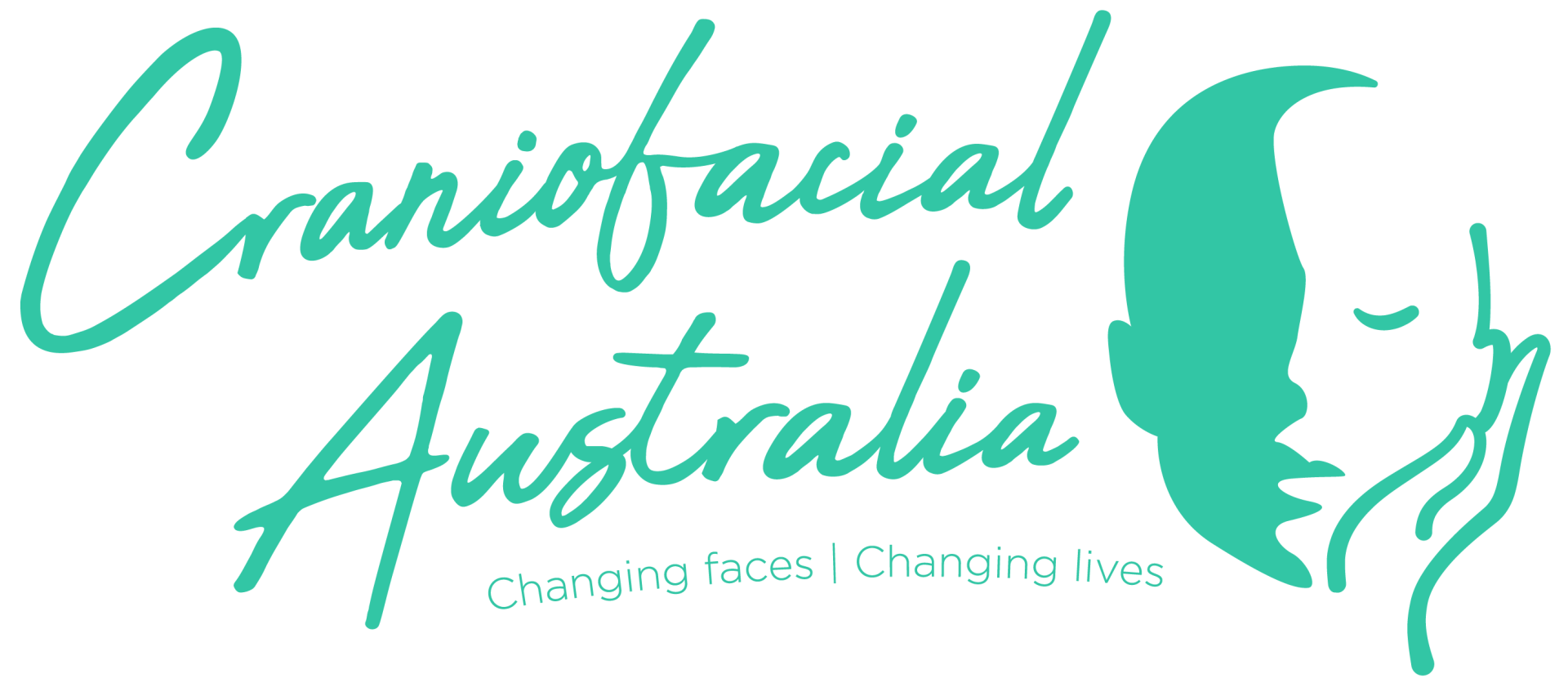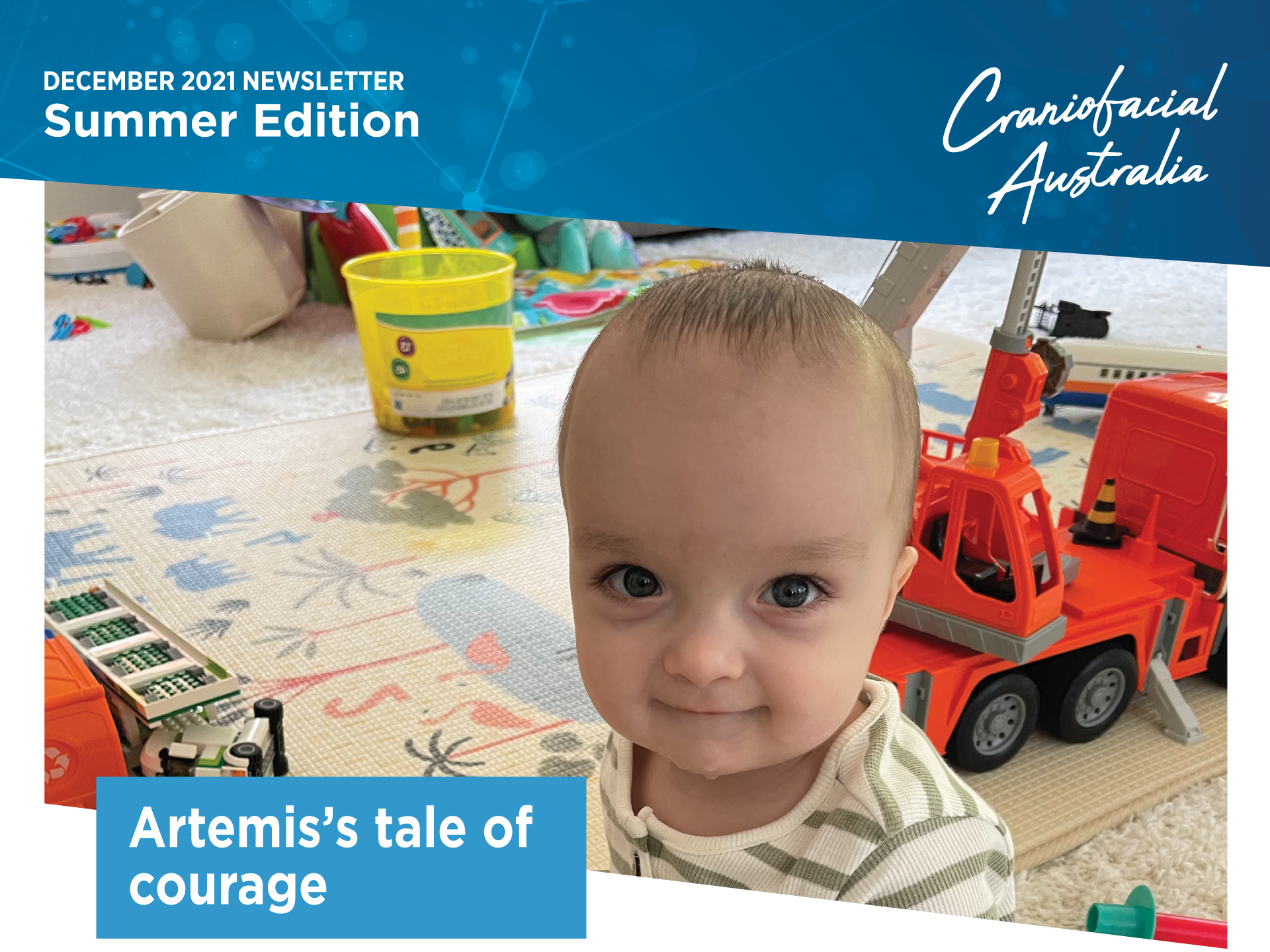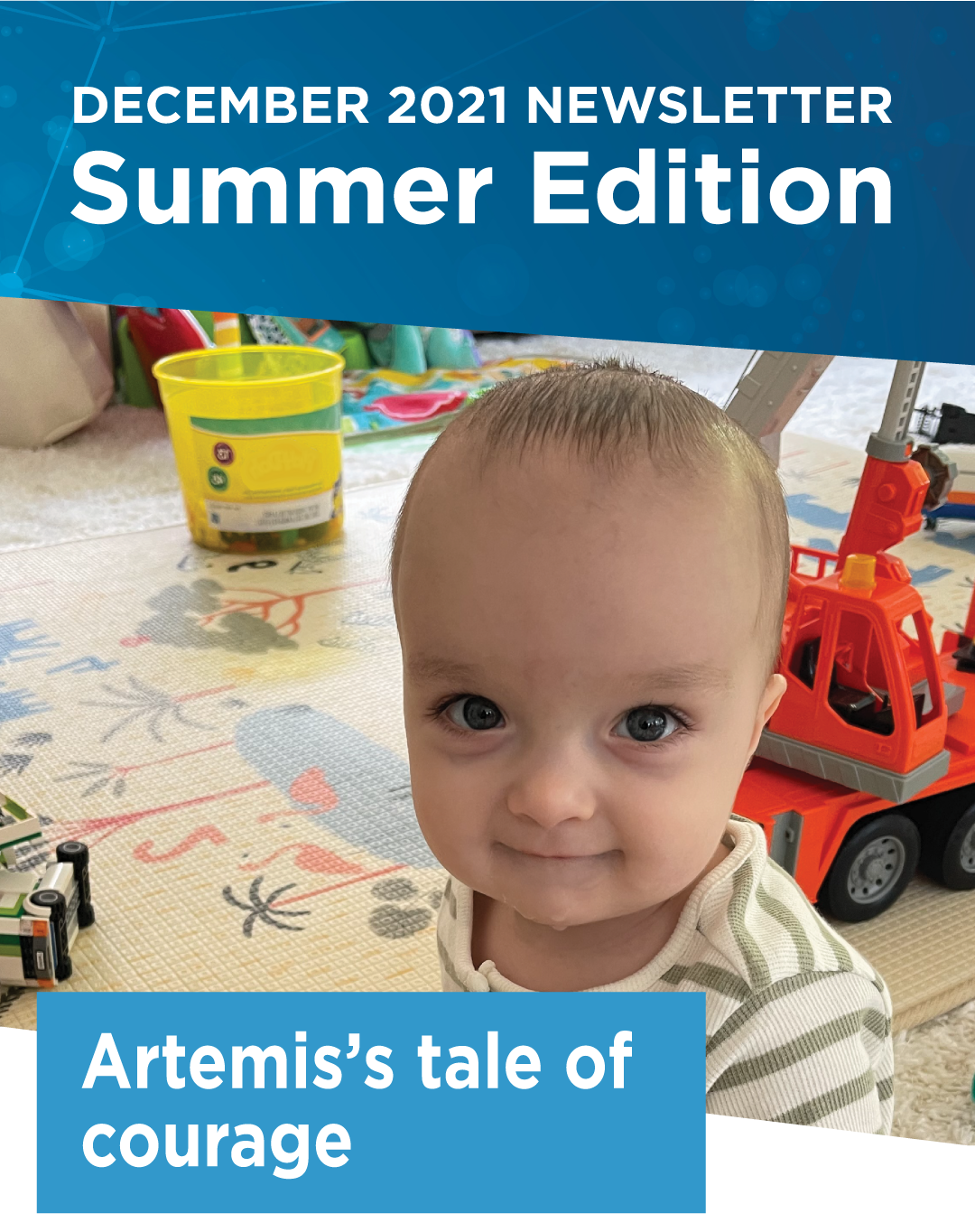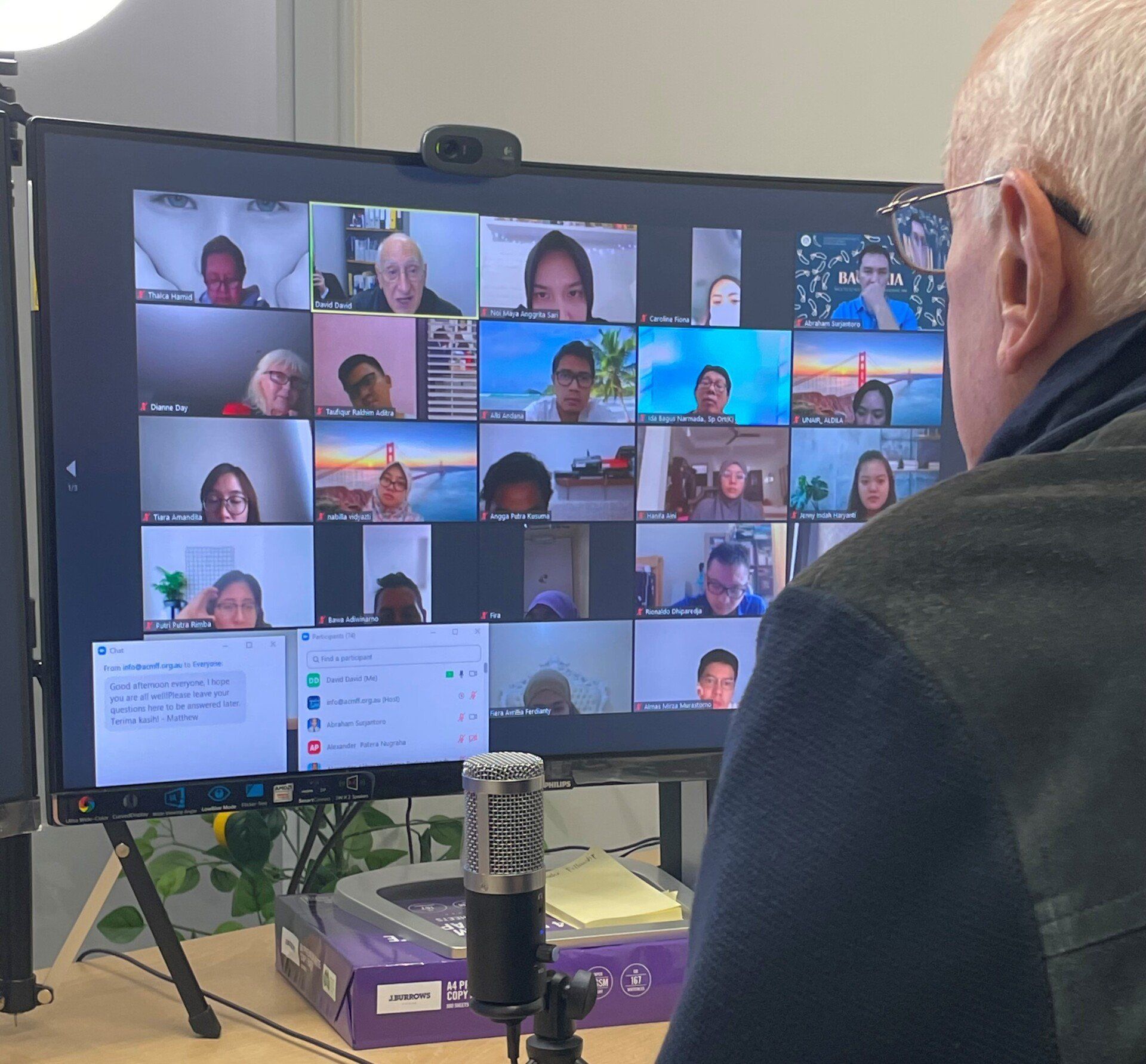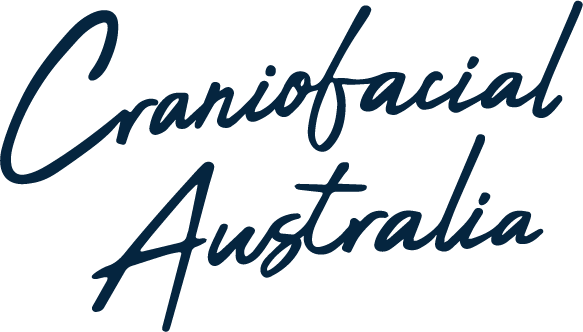We have all experienced adversity as a result of the COVID-19 pandemic: the closure of schools, concern for the health and well-being of the community, the separation of loved ones. Each and every one of us have, at some point, felt fatigued, alone or scared. Now imagine everything you have experienced during the pandemic as well as the added stress of trying to cross the border from Queensland to Adelaide so your son can receive life-changing craniofacial surgery. Not only do you have to plan and fund the trip, you have to navigate snap lockdowns that can throw your plans into disarray at any moment.
The Ollett family don’t need to imagine it – they lived it. Artemis had recently been diagnosed with Sagittal Synostosis and was scheduled for surgery in Adelaide. Making the journey half way across Australia was hard enough with a baby requiring craniofacial surgery, let alone during a pandemic. What was meant to be a three-week round trip ended up taking the Ollett family 7 and a half weeks. ‘It was such a huge amount to take on mentally, not to mention the amount of money,’ Artemis’s mum Madeline told us.
However, the Ollett family’s journey started long before Artemis was even born. ‘When we had our pregnancy scans at 30 weeks, they didn’t check Artemis for craniosynostosis so he wasn’t diagnosed,’ Madeline told us. In fact, Artemis wasn’t diagnosed until he was 13 weeks, when they flew over for an appointment in Adelaide with Dr Flapper. Until then, mother’s instinct had told Madeleine something was wrong, but she didn’t know for sure. When Artemis was born, everyone had told them he was fine, but both parents noticed what looked like a bony ridge on the suture running along his cranium. This is common for babies with Sagittal Synostosis, where premature fusion of the sagittal suture restricts the transverse growth of the skull. In order for the skull to expand along with brain growth, the forehead and back of the head compensate by growing further out, resulting in an elongated, narrow head shape.
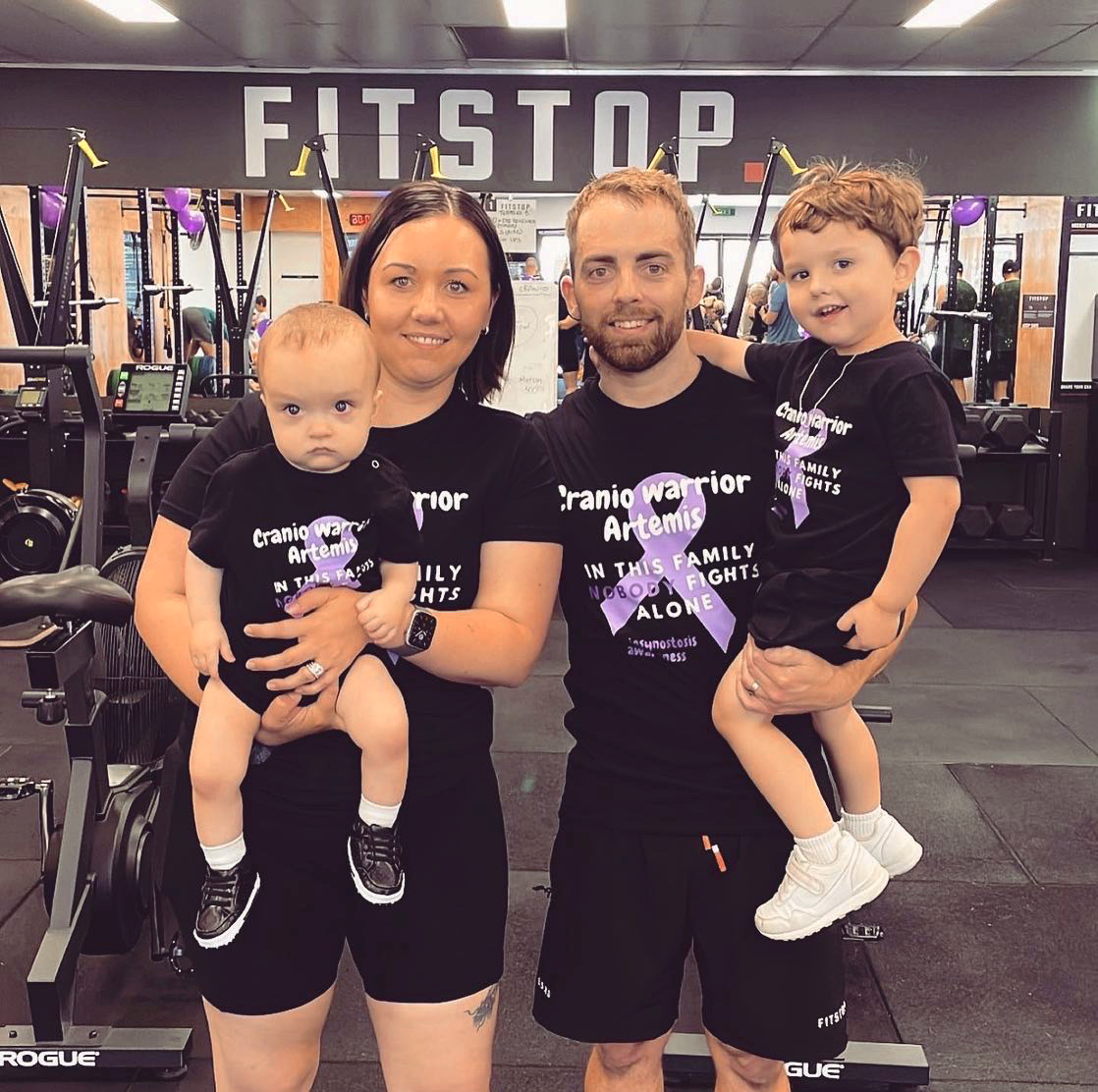

Madeline’s research showed that Artemis’s head resembled those of children with craniosynostosis. During their 6-week check-up a nurse commented on this and urged them to seek further medical advice. Until then Madeline had felt like her concerns weren’t being heard. ‘It’s terrible that you have to keep crossing the hurdles to get someone to recognise and acknowledge that something is wrong,’ she said. Although they felt relief when Dr Flapper diagnosed Artemis, they also felt completely unprepared and shocked. They had never heard of sagittal synostosis before and they had no family or friends with the anomaly.
Months later, Artemis was scheduled for surgery in Adelaide with Dr Flapper, which meant navigating border restrictions, quarantine and the stress of travelling with a small child. As if this wasn’t enough, they were faced with another hurdle in Adelaide when they were preparing for surgery. Artemis’s bloods were considered too thin to proceed with the surgery and there was a high chance that he could bleed out.
‘There are no words to describe the emotions I felt knowing that he could bleed out. That was the scariest feeling,’ Madeline said. After a few more tests it was decided it was OK for Artemis to proceed with surgery as planned. ‘We didn’t sleep a wink the night before,’ Artemis’s dad Joshua told us. ‘Such as small person who is so vulnerable, and they have no idea what is going on.’
In November Artemis turned one. After a year of turmoil and surgery the family is now ready to move forward. The last year was a battle, but they have gotten through. ‘We still watch his head as he is still recovering, and Artemis just never stops moving from the minute he wakes up to the moment he goes to sleep!’ Madeline said. ‘We just constantly watch him to make sure he is OK.’
Craniofacial Australia was able to provide financial assistance to the Ollett family and support them at their most crucial time of need. As a way of saying thank you to the Foundation, the Ollett family hosted a fundraiser at their gym Fitstop Wynnum. ‘We just wanted to give back to the Foundation and raise awareness of craniosynostosis,’ they said. ‘We have been blown away with the support and how much we have been able to raise through our community and now we plan to host a fundraiser each year.’ Their fundraiser, Calories for Cranio, raised over $4,500 for the Foundation and will go directly towards helping other families in their time of need.
Ways you can support Craniofacial Australia
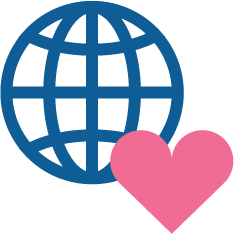
Host your own fundraiser on MyCause
Just like the Ollett family, you can create your own fundraiser at MyCause.com.au. Fundraising events are a great way to raise funds and awareness.

Regular giving
$25 a month for a year could help families with children undergoing craniofacial surgery.
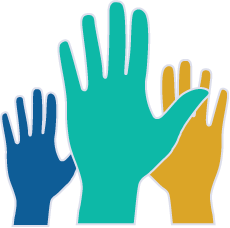
Workplace giving
$10 a week could help a rural family in Australia receive better treatment and care.

To find out more about how you can get involved and help change a person’s life, please call 08 8267 4128 or email info@acmff.org.au
Ways you can support Craniofacial Australia

Host your own fundraiser on MyCause
Just like the Ollett family, you can create your own fundraiser at MyCause.com.au. Fundraising events are a great way to raise funds and awareness.

Regular giving
$25 a month for a year could help families with children undergoing craniofacial surgery.

Workplace giving
$10 a week could help a rural family in Australia receive better treatment and care.

To find out more about how you can get involved and help change a person’s life, please call 08 8267 4128 or email info@acmff.org.au
Thank you for your feedback!
Thank you to everyone who took the time to complete our recent survey and let us know what is important to you. We look forward to working towards ensuring we provide you with content that is relevant to you the way that you want to receive it.
I greatly appreciated the help and support of Dr David David, he is one in a million, and did not press my daughter to have surgery before she was ready.
- Jenny

More than anything you want to hear about:
Patients and parents who have been supported by the Foundation

More than anything you want to hear about:
Patients and parents who have been supported by the Foundation
Here's how you ranked our 3 primary objectives in importance:
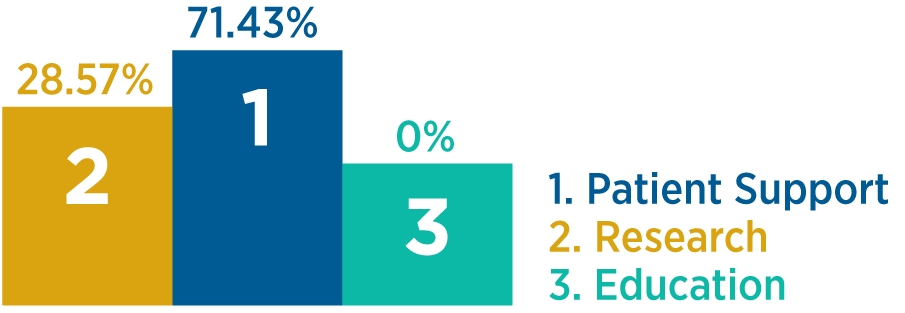
Your preferred method of communication was:
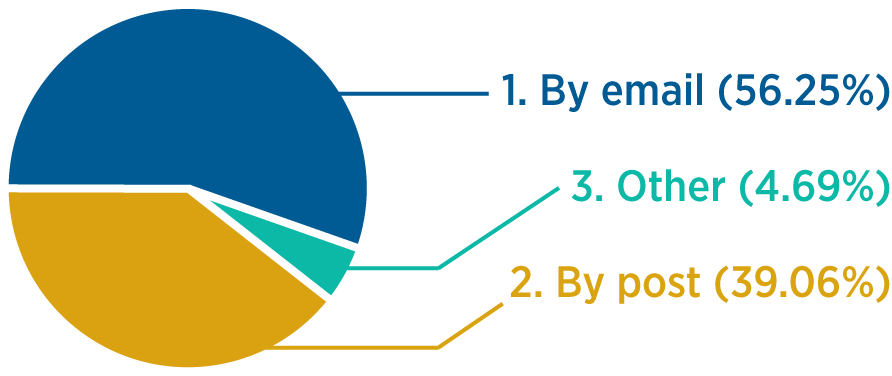
Over 90% agree that the funding Craniofacial Australia provides is:
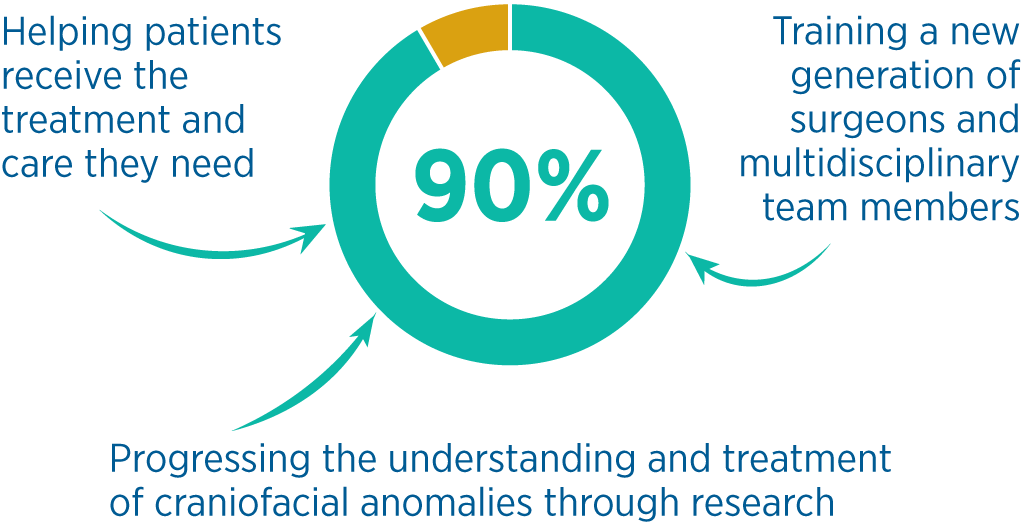
My Mum was a supporter and really enjoyed reading and hearing about the work you do to improve people’s lives. I have carried on supporting your work because I know it was important to her.
- Rob
Education Update
The end of September also saw the conclusion of our Indonesian online lecture series, ‘Advanced Cleft and Craniofacial Management’, which ran over five months. Most of the 21 sessions were delivered by Professor David and Dr Ben Grave, with wonderful guest presentations given by Speech Pathologist Kat Bray, and Anaesthetist Dr Cormac Fahy. In total, 1,775 minutes of content was recorded (about 30 hours). These live presentations were given from our office on Melbourne Street via Zoom to Indonesia, where a cohort of surgeons and other multi-disciplinary team members, organised by Dr Magda Hutagalung and Dr Lobredia Zarasade from Surabaya, participated as students.
The result was a wide-ranging exploration of many important aspects of craniofacial surgery, from the practical (the management of facial clefts, craniosynostosis, how to handle complications post-surgery) to the philosophical (the ethics of surgery, the responsiblities of surgeons to make a patient ‘look good’ in addition to fixing functional problems). The students across Indonesia also provided several cases for Professor David and Dr Grave to look at, and these always proved great starting points for discussion. We are extremely grateful to Dr Magda and Dr Didia for their help and expertise.
Merry Christmas!
Merry Christmas!
Want to be part of ground-breaking research? Now you can!
A research study led by Dr Amanda Osborn and A/Prof Rachel Roberts from the University of Adelaide and funded by Craniofacial Australia, looks at the cognitive, mental health and quality of life outcomes for children, adolescents and young adults with Sagittal Synostosis.
Who is being invited to participate?
People aged between 2½ and 65 years old who have been diagnosed with isolated sagittal synostosis.
What will I be asked to do?
Age-appropriate assessments of behaviour, well-being and quality of life can be completed online at home, at your convenience, with cognitive assessments conducted at the University of Adelaide where possible. Participants can complete just the online portion of the study, or both elements if preferred.
To find out more information about how you can be involved, please visit:
https://health.adelaide.edu.au/sagittal-synostosis-study
Participants will receive a gift card to thank them for their time, in addition to a summary report of their (or their child’s) outcomes for each completed assessment.
A research study led by Dr Amanda Osborn and A/Prof Rachel Roberts from the University of Adelaide and funded by Craniofacial Australia, looks at the cognitive, mental health and quality of life outcomes for children, adolescents and young adults with Sagittal Synostosis.
Who is being invited to participate?
People aged between 2½ and 65 years old who have been diagnosed with isolated sagittal synostosis.
What will I be asked to do?
Age-appropriate assessments of behaviour, well-being and quality of life can be completed online at home, at your convenience, with cognitive assessments conducted at the University of Adelaide where possible. Participants can complete just the online portion of the study, or both elements if preferred.
To find out more information about how you can be involved, please visit:
https://health.adelaide.edu.au/sagittal-synostosis-study
Participants will receive a gift card to thank them for their time, in addition to a summary report of their (or their child’s) outcomes for each completed assessment.
Refined Real Estate
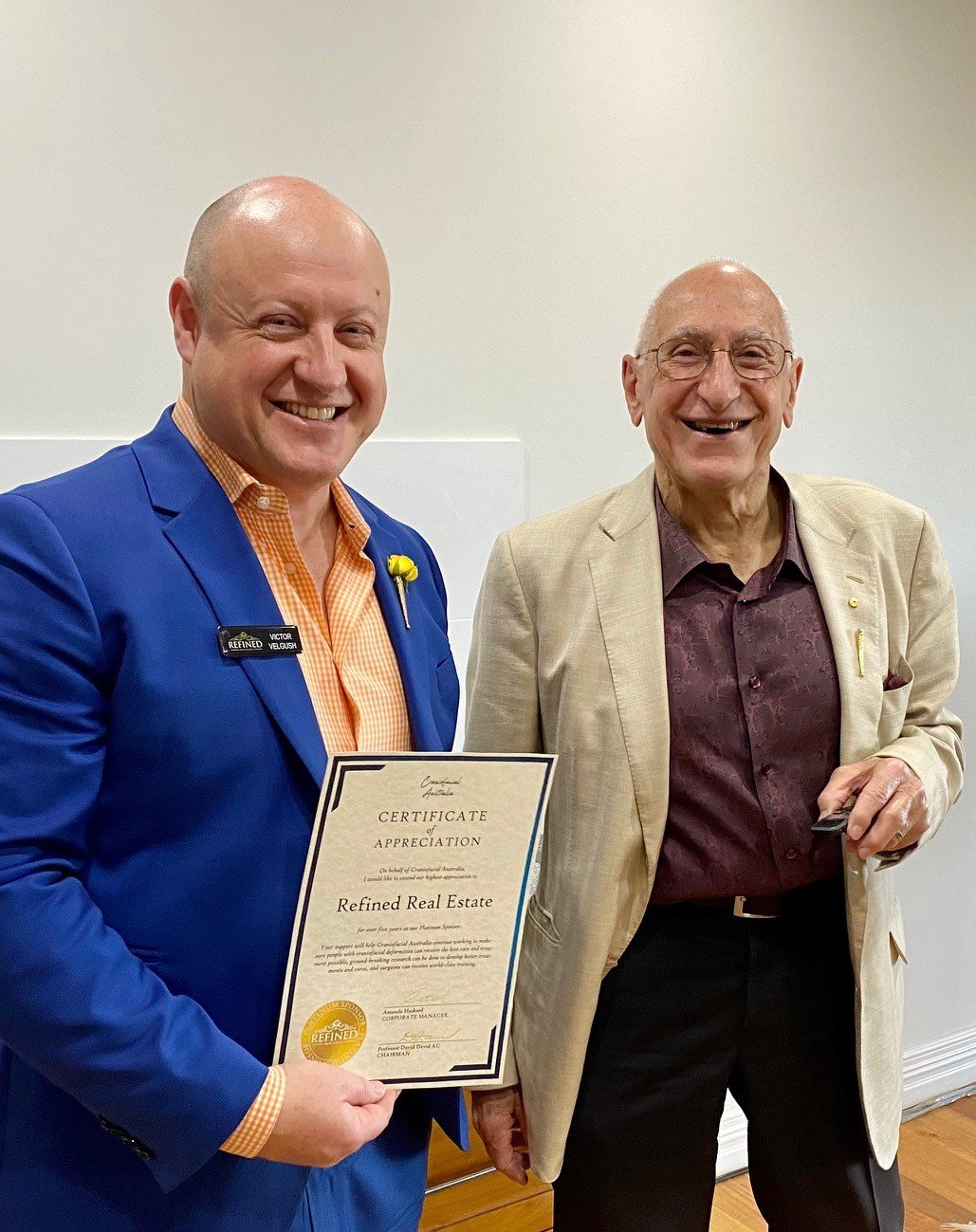
For over 5 years Refined Real Estate have shown their commitment to helping children with craniofacial deformities as the Foundation’s Platinum Sponsor. Their incredible contribution has enabled us to support patients to receive life-changing craniofacial surgery. We recently had the pleasure of attending ‘Making SA Great Again’, a VIP event held at the Refined Real Estate offices in Plympton. Professor David David was the guest speaker at the event, providing insight into why the Australian Craniofacial Unit was established in South Australia and the fundamental role Don Dunstan played in creating the world-renowned Centre of Excellence. As our gracious hosts, Refined showed us the class and elegant characteristic of one of South Australia’s most awarded agencies.
For over 5 years Refined Real Estate have shown their commitment to helping children with craniofacial deformities as the Foundation’s Platinum Sponsor. Their incredible contribution has enabled us to support patients to receive life-changing craniofacial surgery. We recently had the pleasure of attending ‘Making SA Great Again’, a VIP event held at the Refined Real Estate offices in Plympton. Professor David David was the guest speaker at the event, providing insight into why the Australian Craniofacial Unit was established in South Australia and the fundamental role Don Dunstan played in creating the world-renowned Centre of Excellence. As our gracious hosts, Refined showed us the class and elegant characteristic of one of South Australia’s most awarded agencies.
204 Melbourne Street
North Adelaide SA 5006
Phone: (08) 8267 4128
Email: info@acmff.org.au
Sign up for our e-Newsletter
Welcome to the Craniofacial Australia family. We are thrilled to have you join this incredible craniofacial community of ours. At the centre are our families affected by a wide range craniofacial conditions, but an equally important part are our amazing donors, supporters, volunteers, researchers and medical professionals. Thank you for joining our community.
You will now receive our quarterly Newsletter – Changing Faces Changing Lives.
Don't forget to join our community on Facebook and Instagram, where you'll find regular updates on our craniofacial families and all the other happenings at the Foundation.
If you have any questions about our work or want to find out how you can get involved further, please do not hesitate to contact us direct.
If there’s scope to include a banner (such as the email footer banner below) which links to our donate page that would be great).
Many thanks,
Craniofacial Australia
P: (08) 8267 4128
Please try again later.
Registered Charity: CCP2573 | ABN: 29 008 155 780
All Rights Reserved | Craniofacial Australia
Web Design by Ignite Signs + Visual
